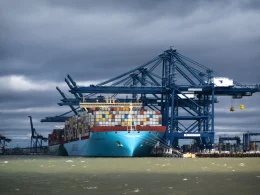Svante Technologies Inc. has announced that its joint carbon capture and storage (CCS) initiative with Mercer International Inc. has progressed to the Front-End Engineering and Design Phase 2 (FEL-2), also known as Pre-FEED. This development marks a key milestone in assessing the commercial feasibility of deploying carbon capture at Mercer’s Peace River pulp mill in Alberta.
The project targets the capture of biogenic CO₂ emissions from pulp production, using biomass sourced from sustainably managed forests. The Pre-FEED phase will involve detailed engineering design, cost estimation, and risk analysis—critical steps toward a final investment decision and possible implementation.
Mercer, a global producer of forest-based products including pulp, lumber, biomass energy, and bioextractives, is exploring the integration of carbon capture technology to support industrial decarbonisation. The move highlights growing interest in CCS solutions across Canada’s pulp and paper sector.
Matt Stevenson, Chief Revenue Officer at Svante, described the advancement as a significant step for CCS in the industry. “We are thrilled to advance this project with Mercer to the Pre-FEED stage. It highlights the viability of our technology for large-scale deployment in Western Canada’s pulp and paper sector, and demonstrates our commitment to sustainable industrial solutions.”
Svante’s second-generation carbon capture system features a modular design that can be integrated into industrial settings such as pulp mills. Its structured sorbent filters use metal-organic frameworks (MOFs) to selectively capture CO₂, offering energy efficiency and operational adaptability compared to earlier-generation capture technologies.
Key technical features include:
- Low energy demand: Utilises low-grade waste heat from pulp mills to power the capture process.
- Modular integration: Compact footprint minimises site disruption.
- Durability: Filters are highly resistant to fouling in particulate-heavy environments.
- Environmental safety: Non-toxic materials and recyclable filter design.
- Operational flexibility: Rapid capture process responds effectively to fluctuating industrial conditions.
The Mercer Peace River facility, which generates low-carbon electricity onsite and recovers waste heat, will supply the project’s energy needs, further improving its emissions reduction profile. The captured CO₂ is expected to be permanently stored in Alberta’s well-characterised geological formations, with regulatory support from the province’s established carbon storage framework.
Bill Adams, Chief Sustainability Officer at Mercer, said the partnership with Svante aligns with the company’s broader climate goals: “Examining carbon capture in a commercial mill setting gives us a valuable opportunity to assess its long-term potential—for both our operations and broader decarbonisation pathways across the sector.”
The project advances efforts to demonstrate the real-world application of CCS in Canadian heavy industry, helping transition climate technologies from pilot concepts to commercial-scale deployment.





















